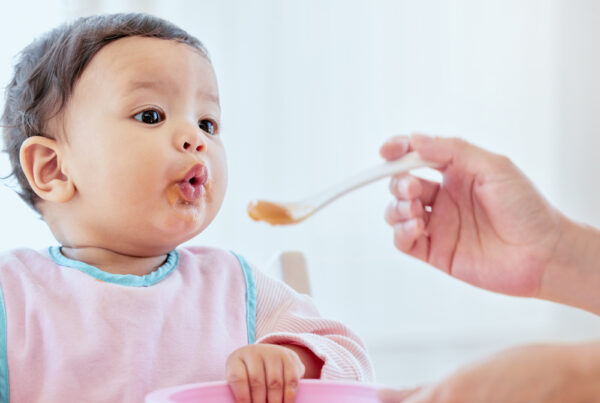If you’re a new parent, you’ll inevitably confront the challenge of babies spitting up. Essentially, spit-up occurs when some of the milk a baby has consumed comes back up from the stomach to the mouth shortly after feeding.
You might feel anxious when your baby spits up, wondering if this is a sign of a more serious issue. There are two categories of spitting up called physiological and pathological.
If the baby continues to gain weight and shows no significant discomfort, then the spitting up can be considered physiological.
I spitting up becomes frequent, a large quantity of milk is regurgitated, or it’s accompanied by symptoms such as abdominal distension, diarrhea, or fever, then it might be pathological.
While physiological spitting up rarely hampers a baby’s growth and development, pathological spitting up requires prompt medical attention.
Learn more about why babies spit up and what you can do about it as new parents.
Why Is My Baby Spitting Up?
Here are five possible reasons babies spit up:
Muscle Control
Babies may not have complete muscle control over their gastrointestinal tract and mouth. Lying flat immediately after feeding can prompt milk to easily reflux.
Feeding Issues
Overfeeding, a large bottle nipple aperture, or improper feeding posture might cause the baby to consume milk too quickly or in excessive quantities, leading to spitting up.
Cold and Cough
When babies are affected by colds or coughs, they may experience nausea and regurgitation, which can result in spitting up.
Pyloric Stenosis
This is a condition where the pylorus, the stomach’s connection to the duodenum, becomes stenosed. It can trigger spitting up, especially evident when the baby is around two weeks old, often resulting in projectile vomiting.
Congenital Causes
Some babies might have congenital malformations in their digestive tracts, like esophageal atresia or intestinal atresia, causing delays in milk reaching the stomach and subsequently leading to spitting up.
What to Do When Your Baby Spits Up
Here are six ways to handle your baby spitting up:
Select the Right Nipple
When using formula, ensure the bottle’s nipple has an appropriate size hole. Too small, and the baby might swallow more air; too large, and the milk may flow too rapidly.
Proper Breastfeeding Position
Sitting up and allowing the baby to lean at about a 45-degree angle is ideal. This not only aids digestion but also minimizes the chances of spitting up.
Back Patting
After feeding, hold the baby upright and pat their back. This allows them to burp, releasing any swallowed air and reducing the likelihood of spitting up.
Side-Lying Post-Feed
Don’t lay your baby on their back immediately post-feed. Instead, let them lie on their side for a bit to prevent milk from flowing back up.
Limit Activity Post-Feed
Don’t change your baby’s diaper or clothing immediately after feeding, and avoid any vigorous activity, as these can cause spitting up.
Keep Your Baby Warm
Ensuring your baby remains warm is key. Coldness can sometimes trigger spitting up, so make sure they’re appropriately covered during sleep and avoid feeding them cold foods.
*This information was reviewed by our founder Joy Millan to ensure accuracy. Contact Joy of Life Surrogacy for more information about pregnancy and parenting tips!









